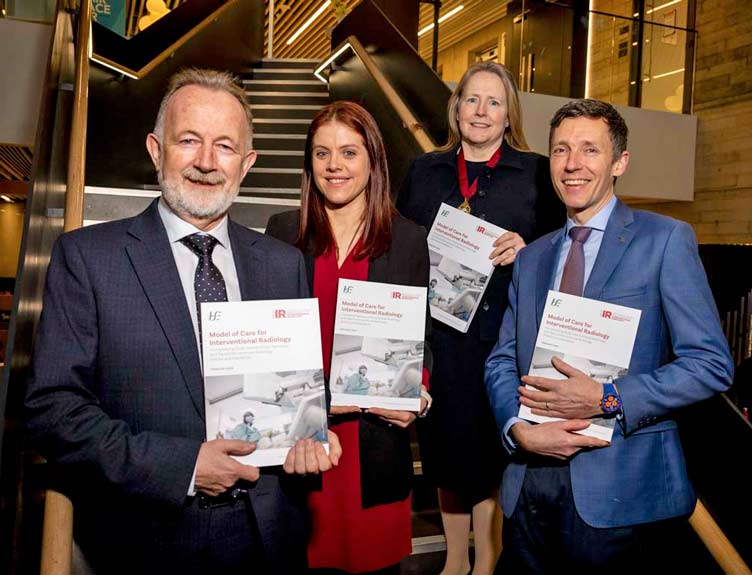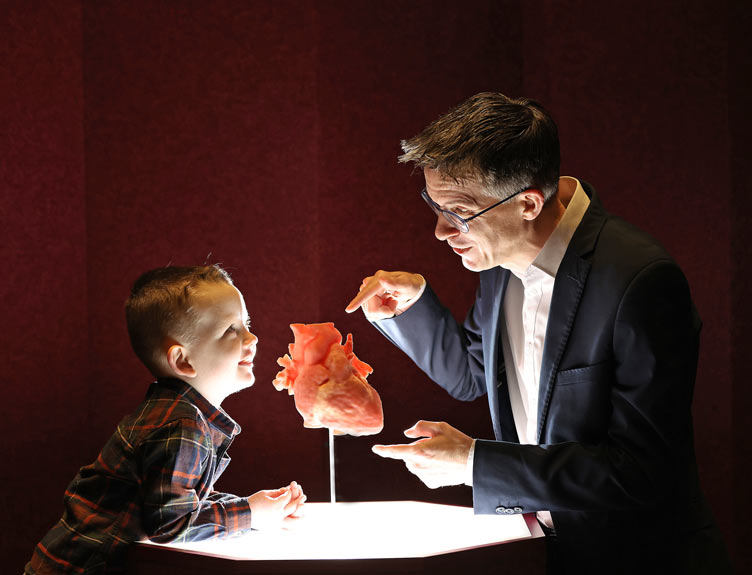RCSI Chair of Cardiovascular Research joins EU project to review evaluation of high-risk medical devices

Professor Robert Byrne, Chair of Cardiovascular Research at RCSI University of Medicine and Health Sciences, will be the Dublin-lead on the new EU-funded CORE-MD project aimed at reviewing the methods for evaluating high-risk medical devices.
Professor Byrne, who leads the Cardiovascular Research Institute Dublin and is Director of Cardiology at the Mater Private Hospital, will join a number of European stakeholders to identify ways to enable the scientific, fair, and systematic evaluation of medical devices.
Led by the European Society of Cardiology (ESC) and the European Federation of National Associations of Orthopaedics and Traumatology (EFORT), the CORE-MD consortium includes 22 partners involved in the development, evaluation, approval, clinical use and monitoring of medical devices.
The project launch comes as new EU medical device regulations come into force on 26 May 2021, increasing the requirements for clinical evidence on high-risk medical devices. However, there are no specific EU recommendations on the design and conduct of trials for high-risk devices. In addition, medical device developers have expressed concerns that the new rules may inhibit innovation and delay market access.
More than 50% of high-risk implantable medical devices in Europe are used in cardiology and orthopaedics – such as heart valves and hip replacements – and CORE-MD will focus primarily on these areas. The three-year project begins with a systematic review of methodologies used in clinical trials to evaluate high-risk medical devices, including statistical methods and the utility of patient-reported outcomes for regulatory decisions.
CORE-MD will propose a method to generate evidence using innovative methodologies like randomised registry trials and how to assess artificial intelligence algorithms that are incorporated within devices. The project will also examine ways to evaluate medical devices used in children. Advice will be provided on how to extract maximum value from real-world evidence including medical device registries and clinical practice.
Recommendations from the CORE–MD consortium will be submitted to the Working Group on Clinical Investigation and Evaluation of the European Commission, so that they can be considered as the basis for developing EU guidance documents or common specifications.
Professor Byrne said: "The availability of approved, high-risk medical devices such as stents, heart valves and hip replacements has transformed the lives of countless patients in Ireland and throughout Europe. The CORE-MD project is a Europe-wide collaboration of doctors, regulators and patient groups focused on working together to identify ways to enable the scientific, fair, and systematic evaluation of medical devices across Europe. We are delighted that Dublin has been chosen as a hub to lead one of the key work packages of this project, together with our national regulator, the Health Protection Regulatory Agency."
CORE-MD Scientific Coordinator, Professor Alan Fraser of the ESC, said: "High-risk medical devices should be approved based on scientific and clinical evidence. Experts need to advise how regulators can achieve an appropriate balance between innovation, safety, efficacy and cost-effectiveness. We look forward to doing that through our unique collaboration of medical associations, EU regulators, national public health institutes, notified bodies, academic institutions, patient groups, and health technology assessment agencies, with participation of manufacturers' trade associations."
This project has received funding from the EU's Horizon 2020 Research and Innovation Programme under grant agreement No 965246.



